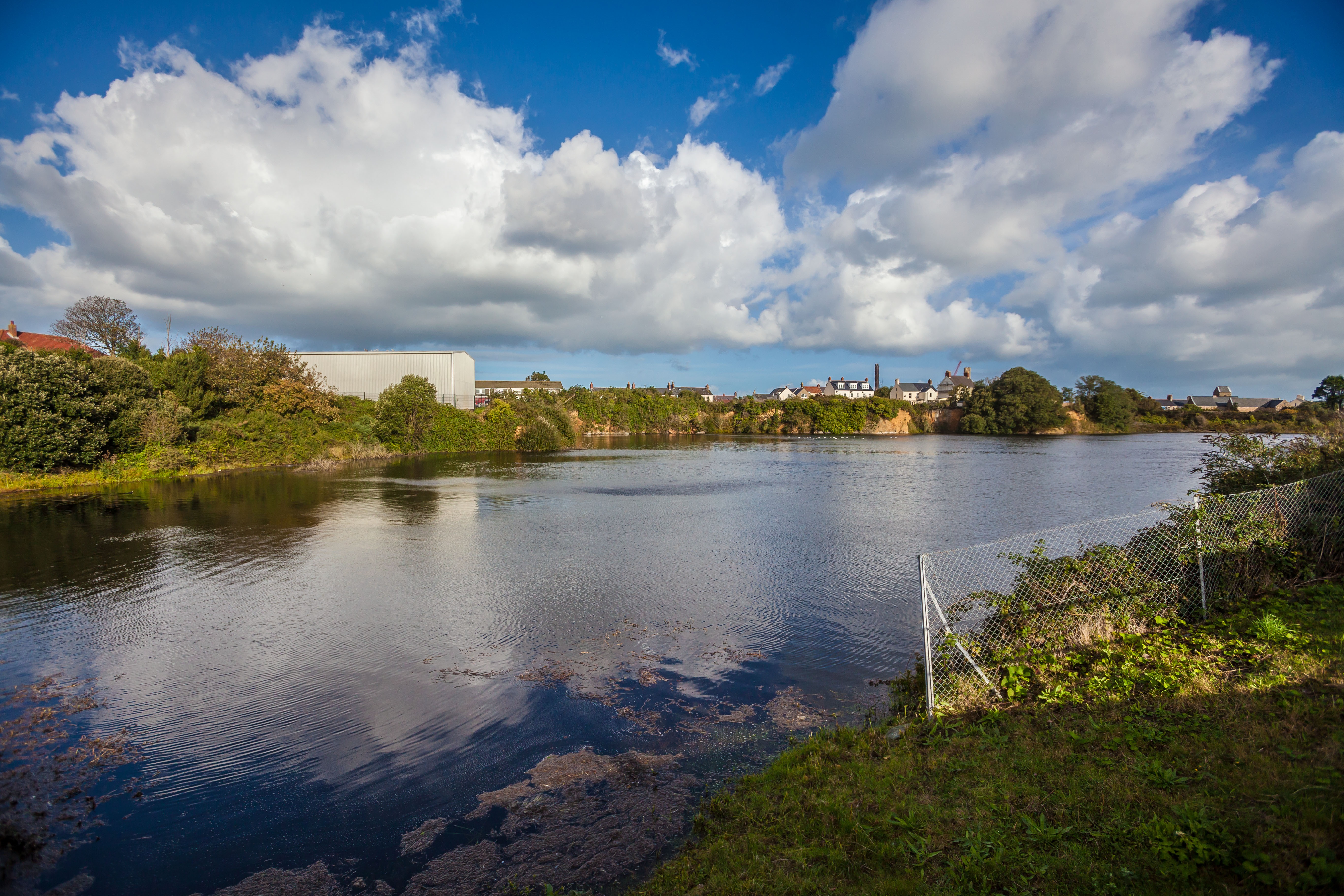Longue Hougue reservoir fully available after metamitron decline
Longue Hougue has returned to full availability after a decline in metamitron levels.
The now-banned pesticide was discovered in the reservoir earlier in the year during routine sampling and immediately isolated from supply.
Following swift action by Guernsey Water, the levels have declined by over 90% and are now within safe limits to once again supply the island at maximum capacity.
Actions taken include enhanced sampling and analysis, diluting the Longue Hougue supply with water from other reservoirs and introducing carbon dosing to completely remove metamitron at the Juas water treatment works.
The use of water from Longue Hougue was also reduced. Up to 10 million litres of water per day would normally be transferred from Longue Hougue reservoir to our Juas reservoir for treatment; the levels of metamitron present meant that the maximum rate was reduced to around three million litres.
It is estimated that it took just half a litre of metamitron to contaminate Longue Hougue’s 1.1 billion litres.
When full, the reservoir contains 27% of our stored water and reducing its output placed our water resources under strain – especially in an already exceptionally dry year.
Carbon dosing removes some pesticides and other organic compounds from water by adsorption and successfully removed all traces of metamitron from treated drinking water.
The source of the metamitron has never been found, nor detected elsewhere.
Water Quality Risk Manager Daffyd Griffiths said:
“Although investigations were inconclusive and we were unable to determine where the pesticide originated, robust sampling identified it and enabled us to prevent it from becoming a danger to the drinking water supply. However, coming in a remarkably dry year meant having to restrict flows from Longue Hougue, which reduced our resilience to drought.
“This example underlines the importance of our stream monitoring, which allowed us to identify and respond to this issue in time to protect drinking water. Carbon dosing has proven to be very effective, but is not a silver bullet and does not negate the need for responsible pesticide use.
“As we approach the last Bank Holiday weekend of the year, I urge everyone to follow guidelines when using any pesticide, herbicides, fungicides and insecticides. Do not spray if rain is forecast, do not apply on or near streams, on hard surfaces or near drains. This includes road drains which often discharge into streams, and always ensure that any leftover chemicals or containers are disposed of correctly. You can take them to the Longue Hougue recycling centre, for free.”
Despite the dry year, no water use restrictions are currently planned. Updates on the water resource position are being placed on the Guernsey Water Facebook page fortnightly.

